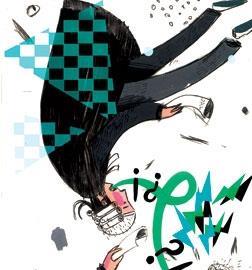State your case - An expert witness’ duty is to the court, but Barry Milton has encountered many who wouldn’t dream of contradicting their clients
The Society of Construction Law (SCL) was founded in the UK in 1983 to promote education, study and research in the field of construction law. As far as I am aware, I am the first chartered building surveyor to act as its chair. The society has in the past addressed topics such as delays in construction (which resulted in the publication of the Delay and Disruption Protocol) and ethics in construction (which led to the creation of the SCL Ethics Group).
One topic that is particularly close to my heart is the role of the expert witness. I have been an expert witness several times over the past 25 years, in cases of construction defects, contractual relationships, professional negligence and landlord and tenant disputes, to name a few.
The textbooks tell us that expert witnesses should be impartial and that their first duty is to the court. I have always tried to follow this guidance and hope I am as impartial as it is possible to be. However, in recent years I have encountered experts who are extremely partisan and for whom it is clear that their client comes first and the court comes second.
When faced with such experts, I have warned the client and legal advisers that it is pointless having a meeting of experts because a partisan expert will never agree with anything that goes against their client.
The meeting of experts is often the first opportunity to test the accuracy of the technical evidence, not just a time for agreeing facts and narrowing issues. I have sometimes found that an expert on the other side makes a valid point that I had not previously considered. In this situation there is no point in hiding from the facts.
The time has come for expert witnesses to stand up and be counted. By that I mean: tell the client the truth and if they don’t like it, resign your commission. We need to reinforce the principle that the expert’s duty is to the court, and this should be at the forefront of the expert’s mind every day. I have witnessed experts’ arguments falling apart in court because they insisted in continuing to advocate their client’s case.
This is a matter that I have put on the agenda for the SCL, and we are putting together a committee to discuss it. Rather than simply referring to standard text from books and expert witness courses, I believe it would be far better to use our own personal experience to highlight good and bad practices. The society welcomes anybody’s views on this, so please do not hesitate to contact us through our website.
Postscript
Barry Milton is a chartered building surveyor and chair of the Society of Construction Law (UK)
The Society of Construction Law is hosting its second International SCL Conference in London this year from the 5 –7 October. For more information visit www.sclinternational.org




























No comments yet